Bubblin’ Up: Varhat
XLR8R travels to Paris to learn more about one of the most exciting talents in the French music scene.
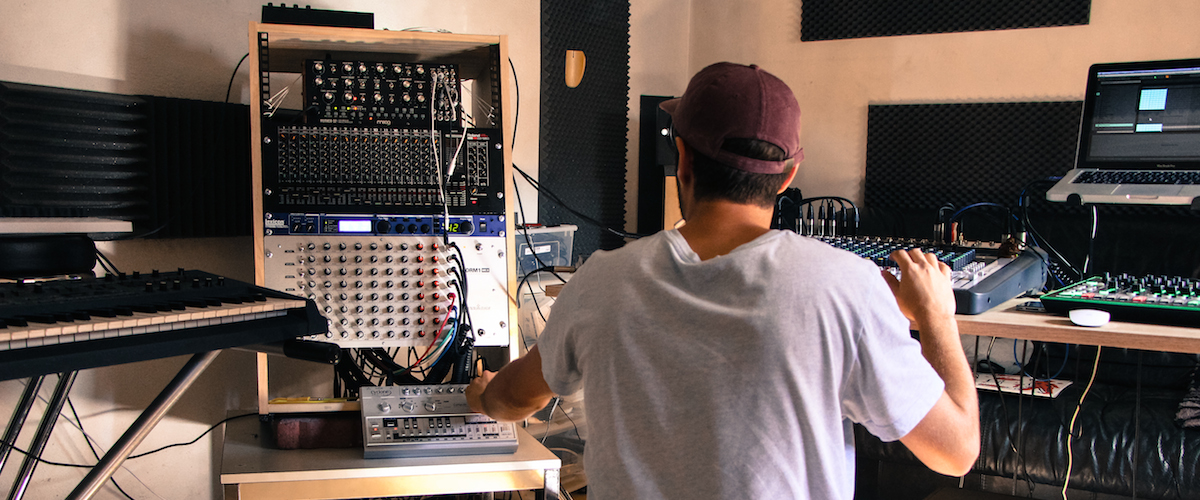
Bubblin’ Up: Varhat
XLR8R travels to Paris to learn more about one of the most exciting talents in the French music scene.

Following a string of acclaimed releases, Varhat has established himself as one of most exciting talents in the French scene. William Ralston visited him in Paris to learn just why. To accompany his first ever interview, Varhat also offered one of his unreleased tracks, entitled “accélérateur,” as a free download via the button below.
Paris, France. Vincent Lubelli is perched on the red sofa positioned beside the open doorway of yoyaku, the fledgling record shop located just a few kilometres North East of the city’s vibrant centre. He is in town to mark the store’s recent relocation to a larger home, before playing his first set at Concrete early the following morning. It’s a cold and rainy midsummer’s day, yet a short queue continues to build as a steady flow of people arrive to join the celebrations and check out the store’s latest offerings. There are drinks available and a DJ is playing, carefully selecting his favourite records from the shelves as each person nips in before returning with a few additions for his or her personal selection. There’s a beautiful sense of ease and inevitability about it all.
Yoyaku’s roots can be traced back to the early months of 2013. Founded by Benjamin Belaga, now 26, it was initially launched as a booking agency for a selection of his budding DJ-producer friends who were seeking representation. The name itself stems from Japanese words for “agency.” One of these artists was Vincent, a friend of Belaga’s since 2012 after the two met in Strasbourg, the North Eastern French city that they both called home for much of their childhoods. Belaga has since moved to Paris, while Vincent has stayed put, electing for the peace and tranquillity of Strasbourg’s outskirts over the hustle of Parisian life. “We’ve known each other for a long time,” Belaga recalls. “He [Vincent] was always the kid of the agency,” he adds, trying to mask a smile.
The situation today is remarkably different. Yoyaku, now a team of five, has diversified its portfolio considerably: in addition to the agency, which now represents eight artists besides Vincent—including French artists like Cabanne, Lowris, Janeret, and Zendid—there is also the record shop and a distribution arm which works with a strictly limited number of labels. There are currently around 10, several of which are actually owned by yoyaku, namely AKU, Hostom, YYY series, Joule Imprint and YOY. This infrastructure is first and foremost exclusive to agency artists and friends to release, distribute their work and develop their own projects; it is not a service offered openly, barring a few exceptions.
The offices are located at the back of the store, having moved from a smaller adjacent room in the same building just earlier this month. For the first year of operation, Belaga ran the agency from the comfort of his own bedroom. As for Vincent: he has established himself as one of most exciting talents in the Parisian scene and has since become a partner in the venture, supervising the artistic direction of both the labels and the shop.
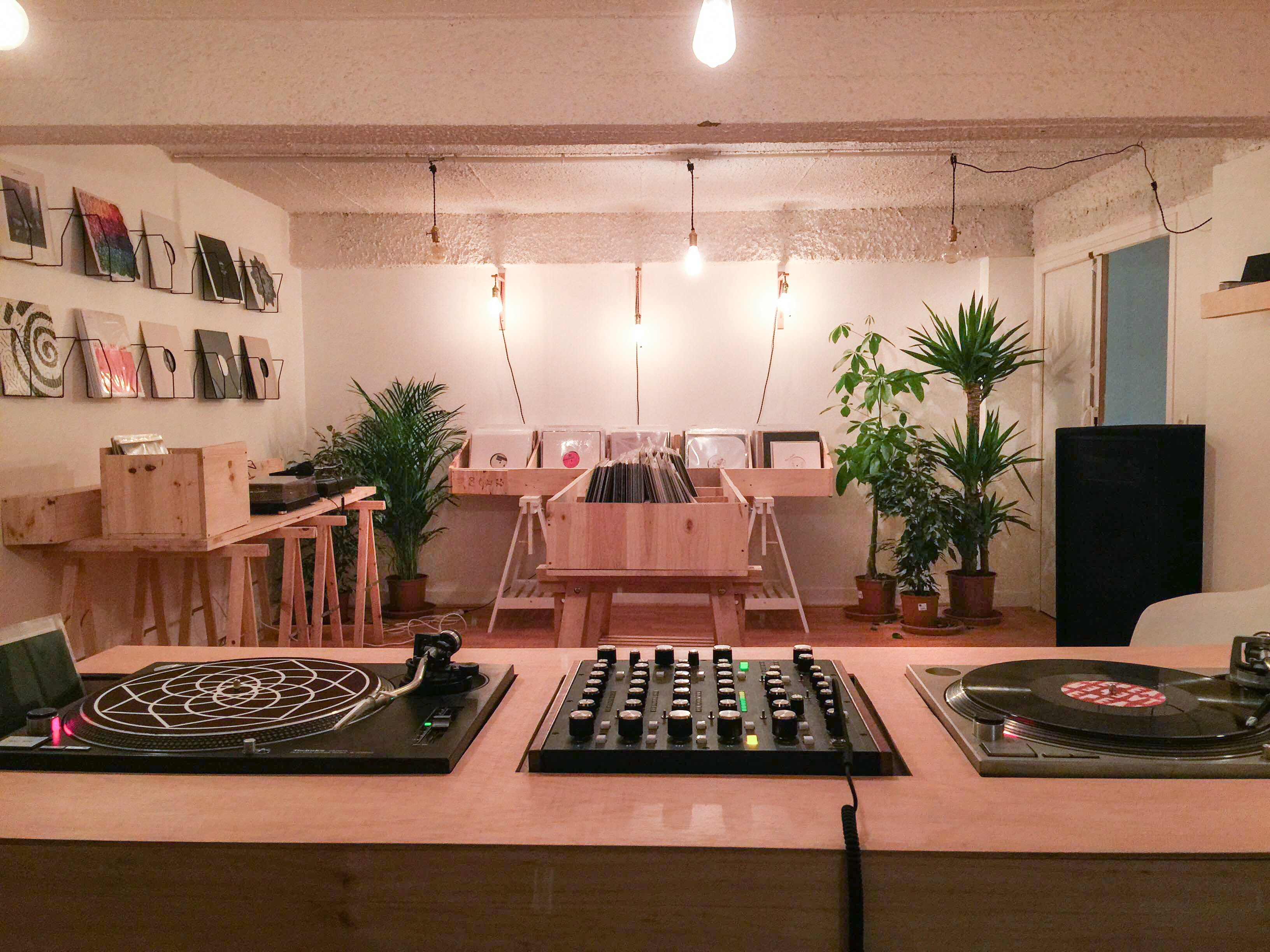
There’s a great amount of discussion around Vincent right now—and for good reason. At the age of just 24, his releases possess a maturity and complex simplicity that has drawn the attention of several of the leading names in minimal house. Check out the evolution of the chord stab in “Khū” or the intricate drum programming in “Leu” for a case in point.
Many of these works have been released as Varhat, an alias that forms an amalgamation of his name (V) and “Arhat,” meaning a Buddhist state of enlightenment. This, he says, is his main project—it is under this moniker that he DJs and through which he released three EPs at the start of the year—but reveals that he continues to “experiment” with his sound by putting out music under several other aliases. One of these is widely believed to be Hostom—an unidentified artist that appears frequently on the label of the same name—although this has not yet been confirmed by either him or one of his representatives. The exact number of remaining side projects also remains unknown.
Of course, in a day where producing and releasing music has become something simple, the adoption of several aliases is hardly an uncommon strategy for artists. This segregation allows them the freedom to explore and release different styles of music without the risk of confusing their fanbase or promoters. In part, this is true for Vincent—but his motives lie as much in the quantity of his output as the various sub-genres encompassed within it.
“If you release too much then people are going to get lost in a sea of tracks,” he says, through slightly broken English. “It easily becomes too much.” As examples, he points to Margaret Dygas and Zip, both of whom have historically limited their releases to no more than one or two per annum.
The problem, Vincent explains, is that he “needs” to produce music—“just like I must eat” he continues.” “If I don’t do it then I feel agitated.” The consequence of this compulsion is a continuous stream of productions; the challenge comes in formulating a strategy to release them. Belaga explains that he expects to receive a track in his inbox at the end of each working day. “It’s my little treat,” he says, grinning. It is for partly for this reason that tracks rarely have coherent names: finding titles is perceived as a waste of time. Much of this material is reserved for Vincent and those artists closest to him—he says he only puts out “really accomplished music”—but the existence of these various aliases, none of which are officially connected to one another, allows him a certain liberty to release a greater quantity of his work.
In terms of style, few, if any, of those tracks attributed to him to date sit too far away from what is commonly termed minimal—although some have more of a house construction than others. He does, however, stress that “diversity” in his output is a priority and that he can never be entirely sure as to what he is going to produce in the studio on any given day. “I’m a bit schizophrenic,” he says. “And I produce different music depending on my mood.” He goes on to reveal that he has already released several “experimental” productions and that there are more scheduled soon.
“It’s important that Varhat has an identity—it must have a personality.”
The way it works, he explains, is simple: on the completion of each track, he will then leave it for a month—or more, if so required. At that point, he will then listen once again to determine the alias. This is dependent on what the track “communicates” rather than its “sound” per se. He continues to explain that the actual style of output for each project can evolve over time provided that the message remains the same. “It’s important that Varhat has an identity—it must have a personality,” he adds. The same principle applies for each alias.
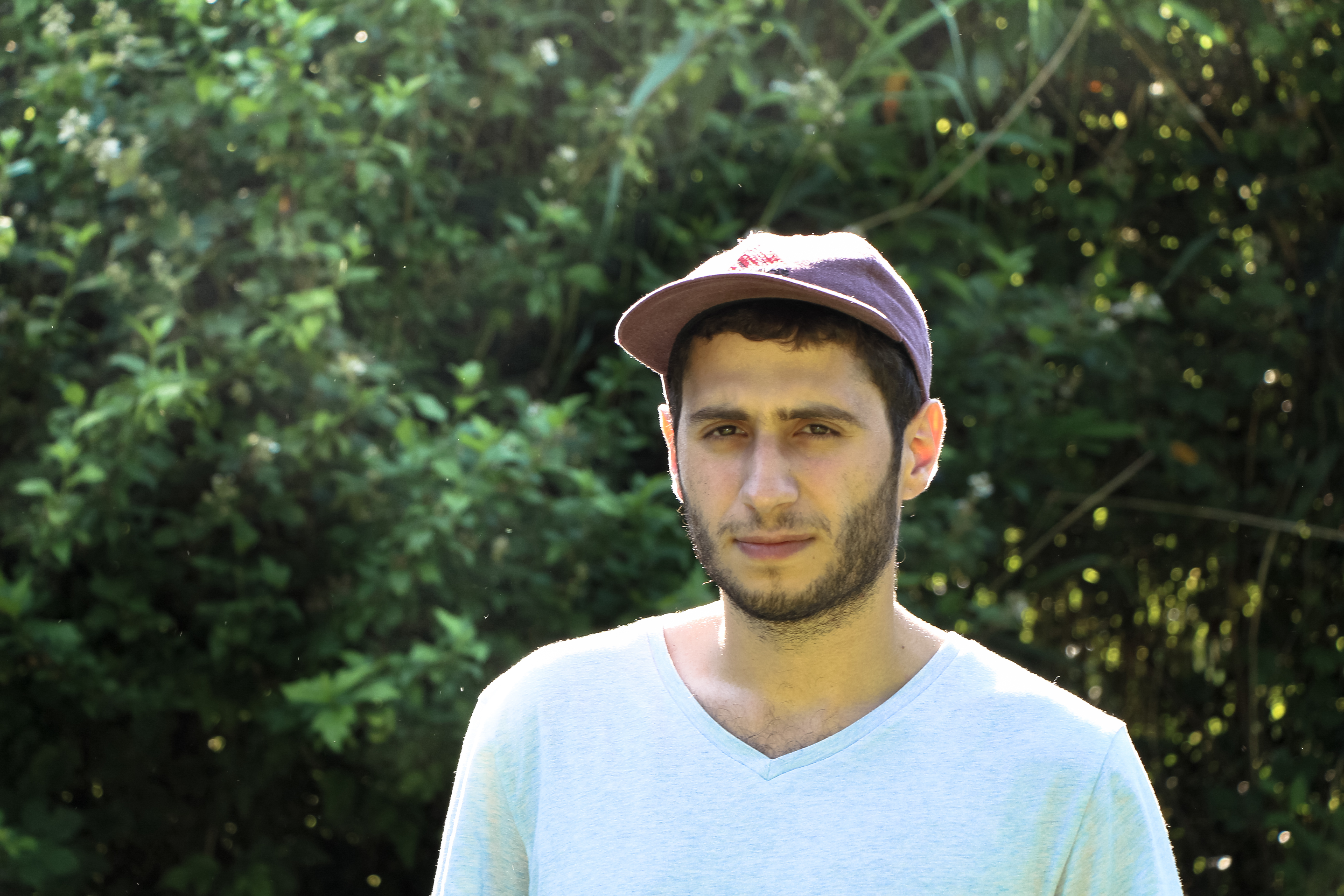
But it hasn’t long been this way. Having grown up in the East of France, much of his focus during his teenage years was placed on his studies. His earliest memories of electronic music came at the age of five when his elder brother began DJing at home for his friends—but his experiences in the field beyond that have been limited, at best. “No, it’s only really been me,” he responds, slightly hesitantly, when asked whether other members of his family had musical backgrounds. His studies, he explains, were always the priority, although music has been in the background ever since he began “experimenting” with Ableton at the age of 18. It was around this time that he also began DJing in small clubs around Strasbourg, though he took neither skill too seriously until the age of 20, just over four years ago.
The turning point arrived in the summer of 2013. At the age of 21, he was just completing his second year of his Brevet de Technicien Supérieur, the French equivalent of higher education, where he was soon due to graduate. Music, at the time, was becoming an increasingly large distraction, to the extent that he found himself working on his productions during classes. “I became a bad student,” he continues, laughing, though seemingly slightly embarrassed by these early misdemeanours. “At school, we had a computer and I began using it to make music.” It came as little surprise that he failed to meet the required grades and was subsequently required to either resit the year or leave to focus his time elsewhere. The decision, it would seem, came quite easily: “I didn’t want to re-do them [exams],” he says. “It was clear to me that I wanted to do something in music.”
Having spent some time experimenting with various different styles, the Varhat project was born in February 2015. It was, he says, a “reset,” marking a time where he felt that his sound had “matured” sufficiently. Much of this growth was inspired by a growing affinity with minimal music, an influence that can be heard in almost all of his productions to date. “I was listening to that [minimal] stuff a lot,” he recalls. “And my sound changed because before that I didn’t really know what I wanted.” The first Varhat track, entitled “Mantra” arrived in August 2015 as part of a Various Artist compilation on Crocus, a small Ukrainian label, followed soon thereafter by three EPs to kick off 2016. Two of these came on his own Aku imprint; the others landed on Mulen Records and Howl. He followed this up with another two-tracker in June, also on Aku.
Although innately adept, it’s clear that much of this early success is owed to his character. On several occasions he describes himself as a “geek,” a word that is repeated with similar frequency by his girlfriend. “I am a total perfectionist,” Vincent explains, grinning, although there is no doubting the authenticity of the statement.
Evidence of this comes from his learning methods: he is entirely self-taught—something that is made even more remarkable given his lack of exposure to music during his early years.“I learned via the internet,” he explains. “I’m part of the digital generation. You can learn anything online.” He stresses the importance of reading manuals, a habit that first evidenced itself during his school years and one that continues today when he acquires new gear for his studio. “All machines come with a big book of instructions but not everyone reads them so they don’t really understand the extent of what they can do,” he explains. “I always read them carefully to really master my equipment.” It is through similar methods that he recently taught himself to use a modular synth and to master his own productions. “I am a sponge,” he adds, smiling. “It’s a continual process of learning and developing.” Many of the tracks never reach release because his standards have risen by the time he revisits them. It is for similar reasons that he will rarely, if ever, play his old productions in his sets.
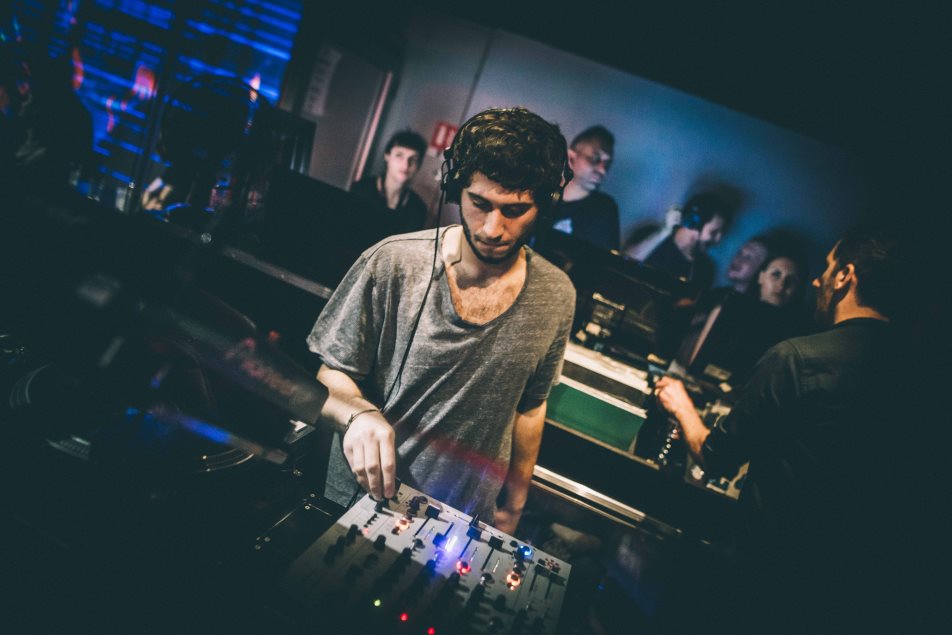
<

This trait is similarly applicable to his DJing. He learned to beat match through Youtube but talks about “training” to refine the skill. “If I don’t want to produce then I will spend hours on Discogs looking for vinyl and then practise mixing all the afternoon,” he says.
One such example of these efforts came last year when he taught himself to use a third channel in his sets. “It [DJing] shouldn’t just be track after track,” he says. There should be more variation.” As a result, he now splits his studio output into two categories: “tracks” and “tools.” The latter, he explains, are produced with the sole purpose of smoothing the transition between the two of the former. “They [“tools”] are functional,” he continues. “This makes my sets more progressive.” In addition to this, he is known to often spend more than a week preparing for a set, and his ability to master his own productions allows him to play unreleased material without compromising the sound quality. He also admits to replaying many of his set recordings at home to discover what each track “communicates.” “This allows me to recreate the same vibe in the future.” It is, by all accounts, something akin to an obsession.
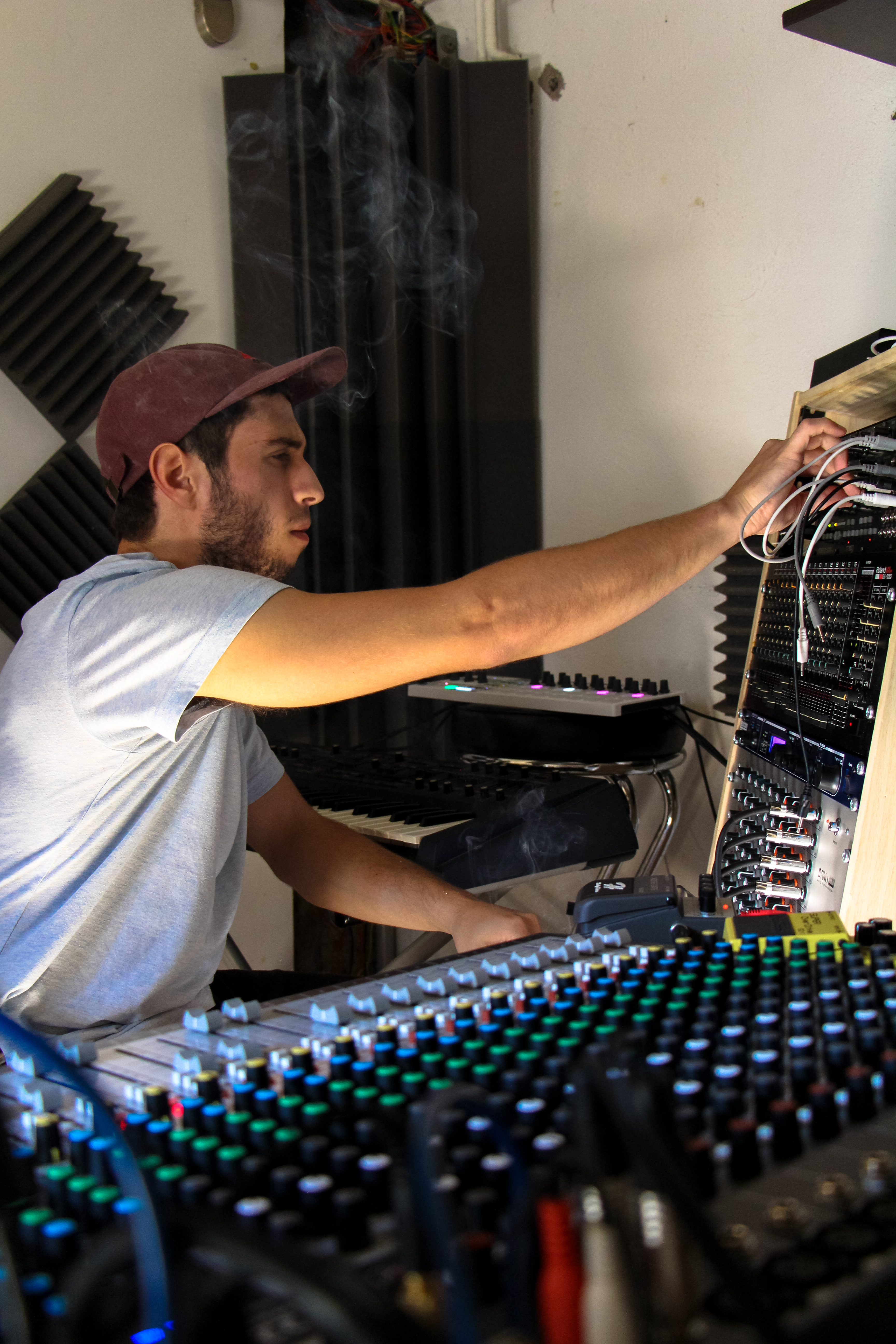
At this point, it is important to stress the importance of yoyaku in Vincent’s development, both to date and going forward. It is not just the agency but also the labels encompassed within it that offer a great source of value. Besides the freedom to release music absent of extensive delays or lead times, the network means he can do so without needing to fit the aesthetic required of any other imprint. “I’m not good at making music for other people,” he says, quietly. Also, Belaga and the team at yoyaku also take care of bookings and management of all artists on the roster, including that of Vincent. This means that there are rarely any conflicts of interest. Indeed, it is striking just how closely this is monitored, talking in terms of “we” rather than “I.” “We work together on many different levels,” Belaga explains. “This means we build their careers together.”
“I live in the country and I make music with the nature around me. It is only by being disconnected that I can go into my own bubble and work.”
It must also be noted that this role is likely only to grow. Talking to Vincent, both on the record and off it, it’s noticeable just how blissfully unaware he is of the number of eyes on him. While he uses the internet to trade music with his peers and develop his skill set, he explains that he is “shy” and requires tranquility in order to produce his best work. “I live in the country and I make music with the nature around me,” he says. “It is only by being disconnected that I can go into my own bubble and work.” He also expresses that this solitude allows him to refine his own sound identity rather than drift towards that of others.
It is here that the work of Belaga and the team is especially important: they are the sole connector—the single channel—between Vincent and the world at large. They manage the social media channels closely, ensuring Varhat communicates with his growing fanbase by posting information about upcoming releases and gigs. “For me, the internet is just a source of information. I just use it only to learn,” he says.
As it stands, things are set up for Vincent’s career to grow considerably over the coming months. It would be foolish, however, to assume that Vincent is alone in his talents, but his mature attitudes towards his success and the infrastructure that he has crafted around him sets him up nicely for the ensuing steps that lie ahead.
“To be in music you’ve got to be professional,” Belaga explains. “If you find a talented artist who is also professional then you can achieve great things.”
Time, it seems, will tell.
accélérateur
Varhat is playing Movement Croatia in July; more information here.

